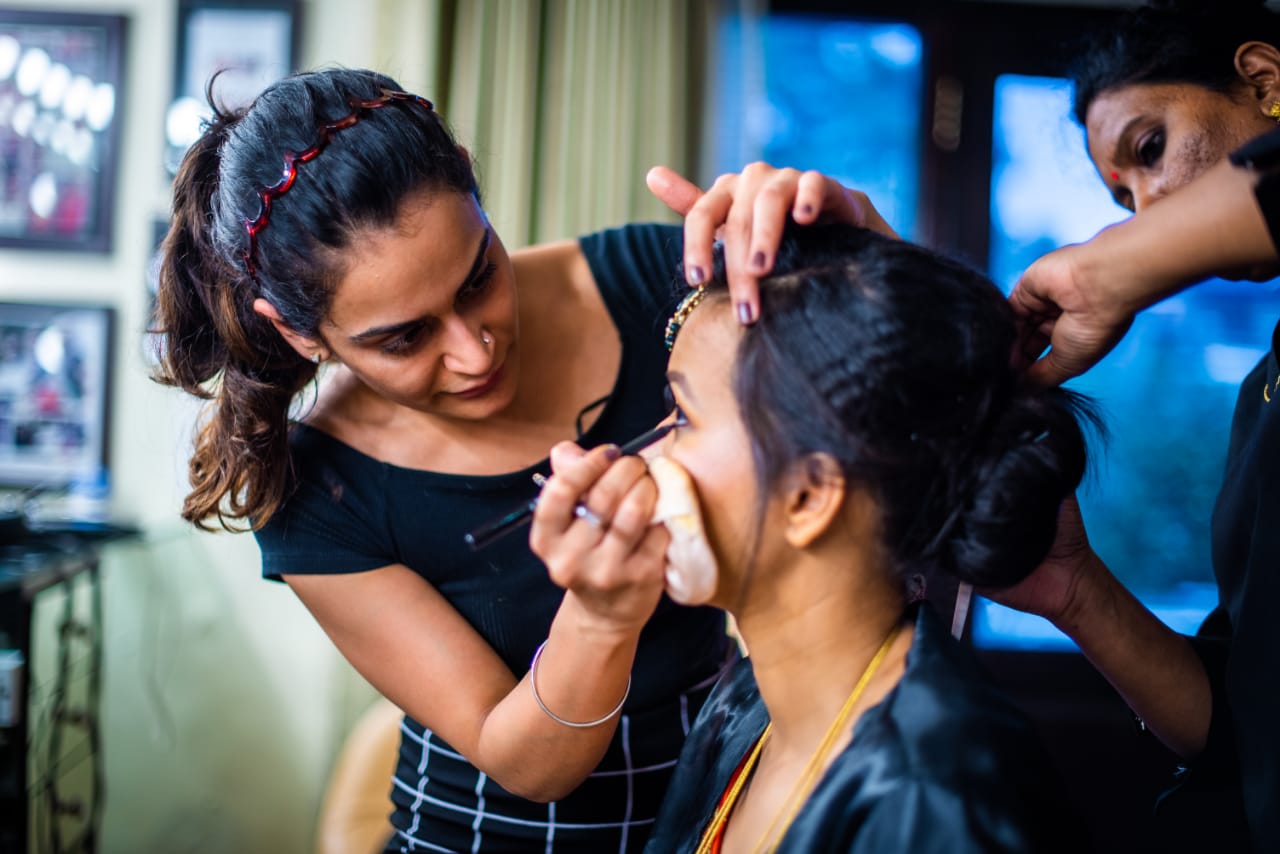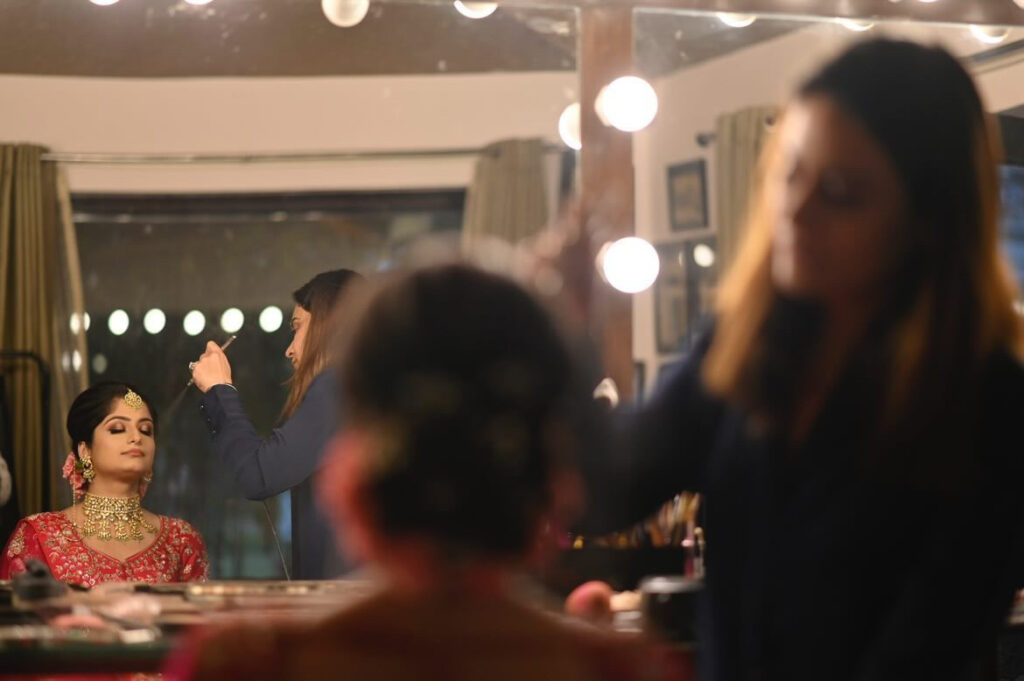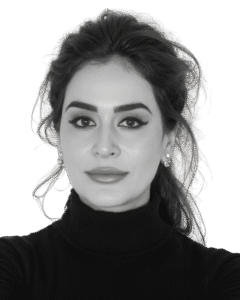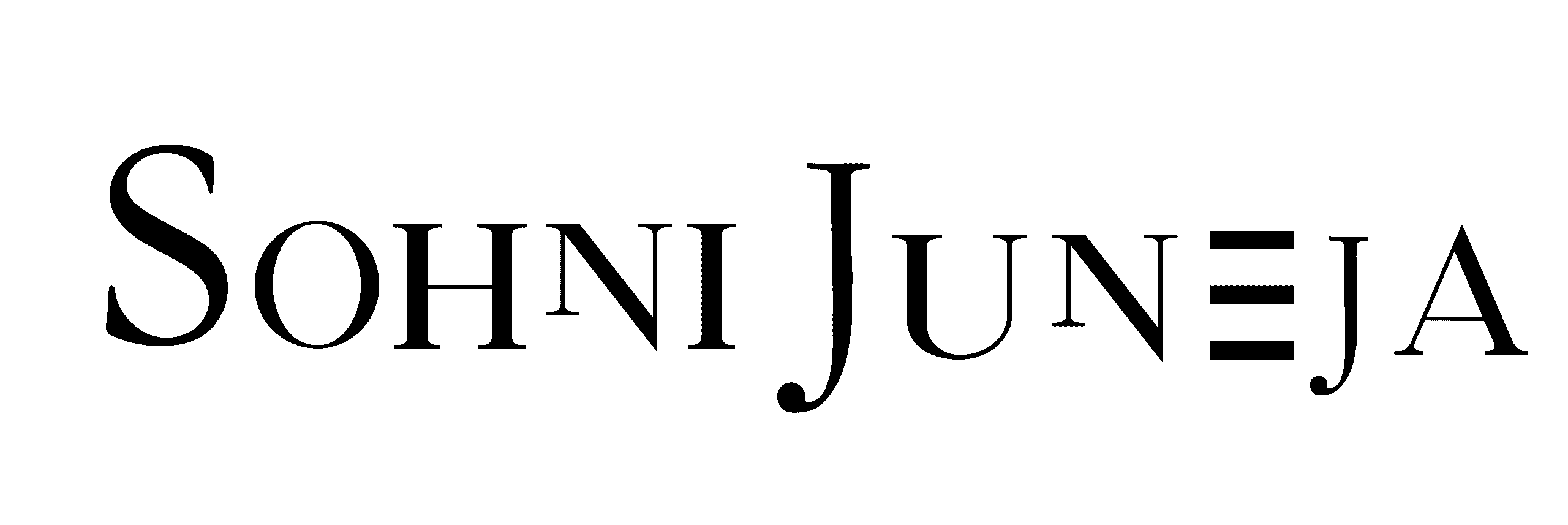
- By Sohni Juneja - In Uncategorized
What Is a Makeup Artist Called? MUA Meaning, Professional Terms & How to Become One
What Does MUA Stand for in Makeup?
You’ve probably seen “MUA” pop up on Instagram bios and YouTube tutorials. The term stands for Make-Up Artist. It started as an industry abbreviation used by photographers and stylists, and quickly caught on across social media because it’s short, trendy, and easy to remember. You can explore more about professional bridal makeup services.
Does MUA Mean Makeup Artist?
Absolutely. The abbreviation is now widely accepted in the beauty community. Many professionals even use it as part of their brand identity or email signature. It gives a modern, global touch to the title “makeup artist” and instantly signals credibility within the fashion and beauty industry.
Whether you see a profile named “Sohni Juneja MUA” or “Pat McGrath MUA,” it signifies a trained professional providing makeup services.
Other Names for a Makeup Artist
While makeup artist remains the most recognised title, there are several professional terms you might come across—each highlighting a slightly different niche or expertise:
- Makeup Specialist: Someone trained for specific areas such as bridal, HD, or editorial makeup.
- Beauty Artist: A more glamorous or artistic label often used in fashion circles.
- Cosmetic Artist: Focuses on product knowledge and skin compatibility.
- Makeup Stylist: Usually collaborates on photoshoots or brand campaigns where styling and makeup merge.
- Makeup Consultant: A professional who also advises clients on skincare, products, and self-application techniques.
Each title carries the same foundation—enhancing beauty—but is shaped by the environment you work in, whether that’s a salon, fashion studio, or freelance setting.
Each title revolves around enhancing beauty but is shaped by the professional environment—salon, fashion studio, or freelance. You can view various party makeup, pre-wedding makeup and other options too.

What Is the Technical Name for a Makeup Artist?
In academic or professional settings, the technical name might vary:
- Cosmetologist – someone trained in the science of beauty, including skincare, hair, and makeup.
- Aesthetician – specializes more in skincare but may include makeup basics.
- Makeup Technician – a certified artist who understands advanced application methods, hygiene, and product chemistry.
If you’ve completed a formal course, you might earn a title such as Certified Professional Makeup Artist (CPMA) or Licensed Cosmetology Professional.
Can I Call Myself a Makeup Artist?
Technically, anyone who applies makeup can call themselves one—but to be recognized as a professional, you should have some training and a strong portfolio.
Here’s a quick checklist before using the title confidently:
- Get trained – Attend a professional makeup academy or online certification course.
- Build a portfolio – Showcase your work through before-and-after photos.
- Understand skin science – Know how different products react to various skin types.
- Maintain hygiene – Sanitize brushes and products regularly.
- Communicate with clients – Every great artist listens first.
Once you’ve checked these boxes, yes—you can absolutely call yourself a makeup artist (or MUA) with pride.
How to Become a Professional Makeup Artist
If the world of brushes, highlighters, and bold eyeshadow excites you, becoming a makeup artist can be a fulfilling career path. Here’s how to begin:
Step 1: Join a Professional Course
Enroll in a certified program that covers everything from basic techniques to advanced HD, airbrush, and special-effects makeup. Institutions like the London College of Fashion, NIFT Delhi, or reputed Indian academies offer top-tier training.
Step 2: Master Different Makeup Styles
Learn bridal, editorial, creative, and SFX techniques. Each genre requires a different skill set, lighting awareness, and product selection.
Step 3: Build a Portfolio
Start with friends or local shoots. Document your work professionally—good photography can speak volumes about your artistry.
Step 4: Gain Experience
Assist a senior artist or work with photographers to understand client expectations, on-set etiquette, and time management.
Step 5: Create Your Brand Identity
Use social media to showcase your artistry. Add “MUA” to your name, build a Google Business Profile, and maintain consistency across platforms.
Step 6: Keep Learning
The beauty industry evolves fast. Stay updated on global trends, clean beauty products, and new techniques to keep your skills relevant.
For more inspiration, you can explore the fashion makeup and hair styling services offered by professional MUAs.
Professional Recognition and Global Perspective
In countries like the UK, US, and Australia, makeup artists are often registered under creative or cosmetology councils. In India, recognition is growing rapidly, especially with the boom in destination weddings and influencer marketing.
Having certifications from recognized academies not only strengthens your resume but also boosts trust when working with high-end clients.
Why Titles Matter in the Beauty Industry
The way you present yourself, Makeup Artist, MUA, or Beauty Stylist, influences how clients perceive your expertise. A clear, professional title sets expectations, attracts the right clientele, and builds authority online.
For instance, “Bridal MUA Sohni Juneja” instantly communicates niche specialization and credibility.
Final Thoughts
A makeup artist is more than someone who applies foundation and lipstick. It’s a title that represents artistry, precision, and confidence. Whether you choose to call yourself a Makeup Artist, Beauty Stylist, or MUA, the heart of the profession remains the same—helping people feel their most beautiful selves.
If you’re passionate about creativity, love working with colors, and enjoy making others feel empowered, then this career is for you. Pick up those brushes, practice daily, and soon enough, the title “MUA [Your Name]” will feel like a badge of honour you’ve truly earned.
bridal makeup artist in dehradun , bridal makeup artist in mussoorie , best bridal makeup artist in dehradun , makeup artist in mussoorie, makeup artist in haridwar , bridal makeup artist in haridwar , bridal makeup dehradunn, bridal makeup artist in rishikesh, makeup artist in rishikesh , makeup artist in dehradun, bridal makeup in dehradun, best makeup artist in dehradun, top makeup artist in dehradun , dehradun makeup artist , bridal makeup artist for destination wedding uttarakhand, party makeup in saree, famous makeup artists in delhi , top 10 makeup artist in delhi , best makeup artist in delhi,
Author
Sohni Juneja
Author

Sohni Juneja, a leading bridal makeup artist and NIFT Delhi graduate trained at the London College of Fashion, is known for her timeless, radiant looks that enhance natural beauty. Blending global techniques with Indian traditions, she creates elegant, flawless styles that make every bride feel truly special.
Search Here
Categories
Latest Tag
-
Air brush makeup
Airbrush Makeup
Bridal Beauty
Bridal Beauty Tips
Bridal Checklist
Bridal FAQs
Bridal Glow
Bridal Hairstyling
Bridal Makeup
Bridal Makeup Mistakes
Bridal Packages
Bridal Services
Bridal Skincare Routine
Bridal Touch-ups
bridal vs Regular Makeup
Bride Guide
Bridesmaids Makeup
Brighten and nourish
Cleanse and Detox
Cruelty-Free Makeup
Destination Wedding
Destination Wedding Makeup
Dewy Finish
Diet and Lifestyle tips
Full Makeup
Hairstyling
Hd bridal makeup
HD Makeup
Hydrate and Repair
Makeup Artist Near Me
Makeup Artist Selection
Makeup Trial
Matte Finish
Meaning of bridal Makeup
mineral and Matte Makeup
On-Location Makeup
Polish and Protect
Popular Makeup Brands
Pre-bridal Treatments
Pros and cons of Hd makeup
Regular Makeup
Remedies at Home
Skin type
Traditional makeup
Types of Bridal Makeup
Vegan Makeup
Wedding Beauty Guide
Wedding Day Guide
Wedding Makeup
Wedding Planning
Wedding Tips







